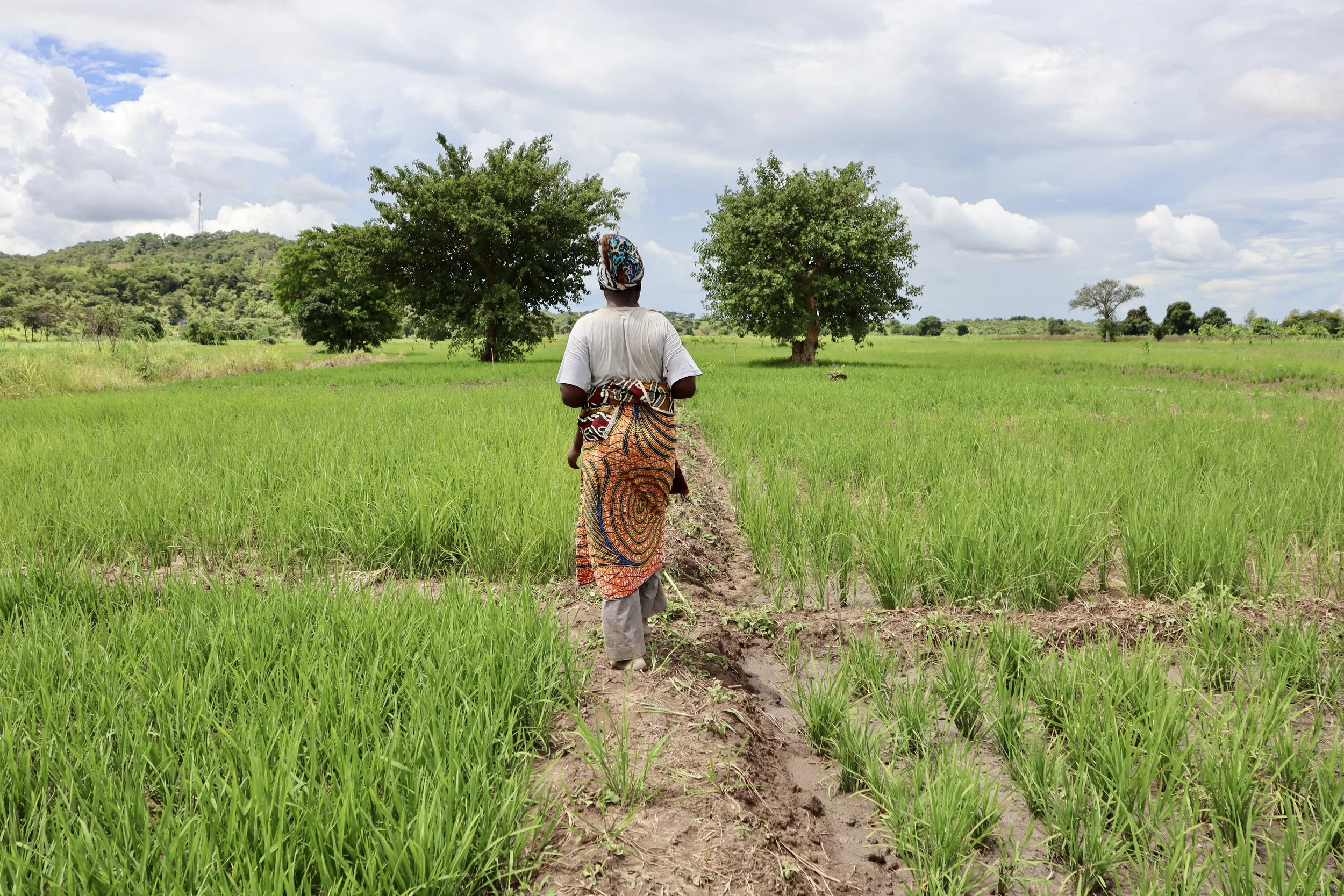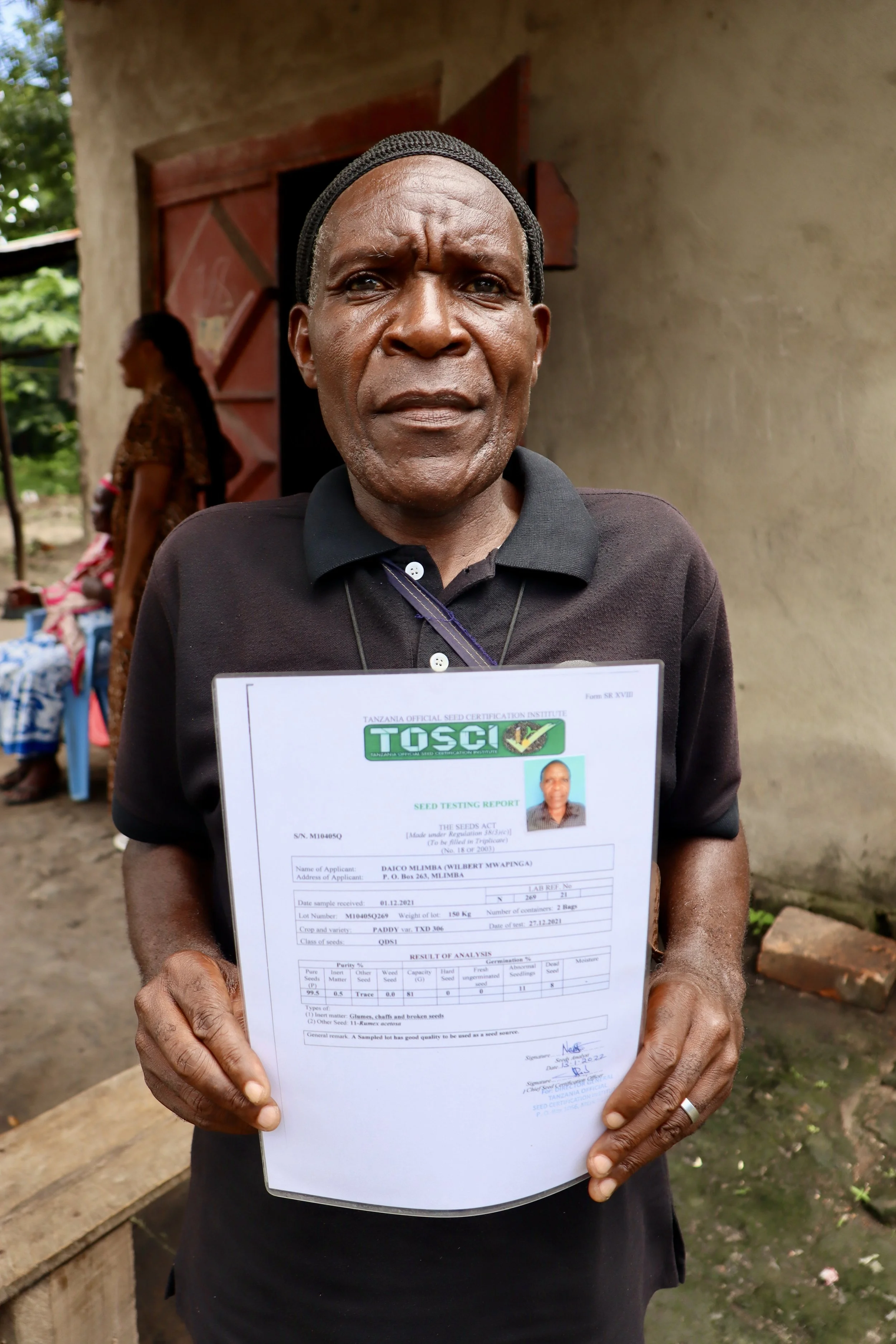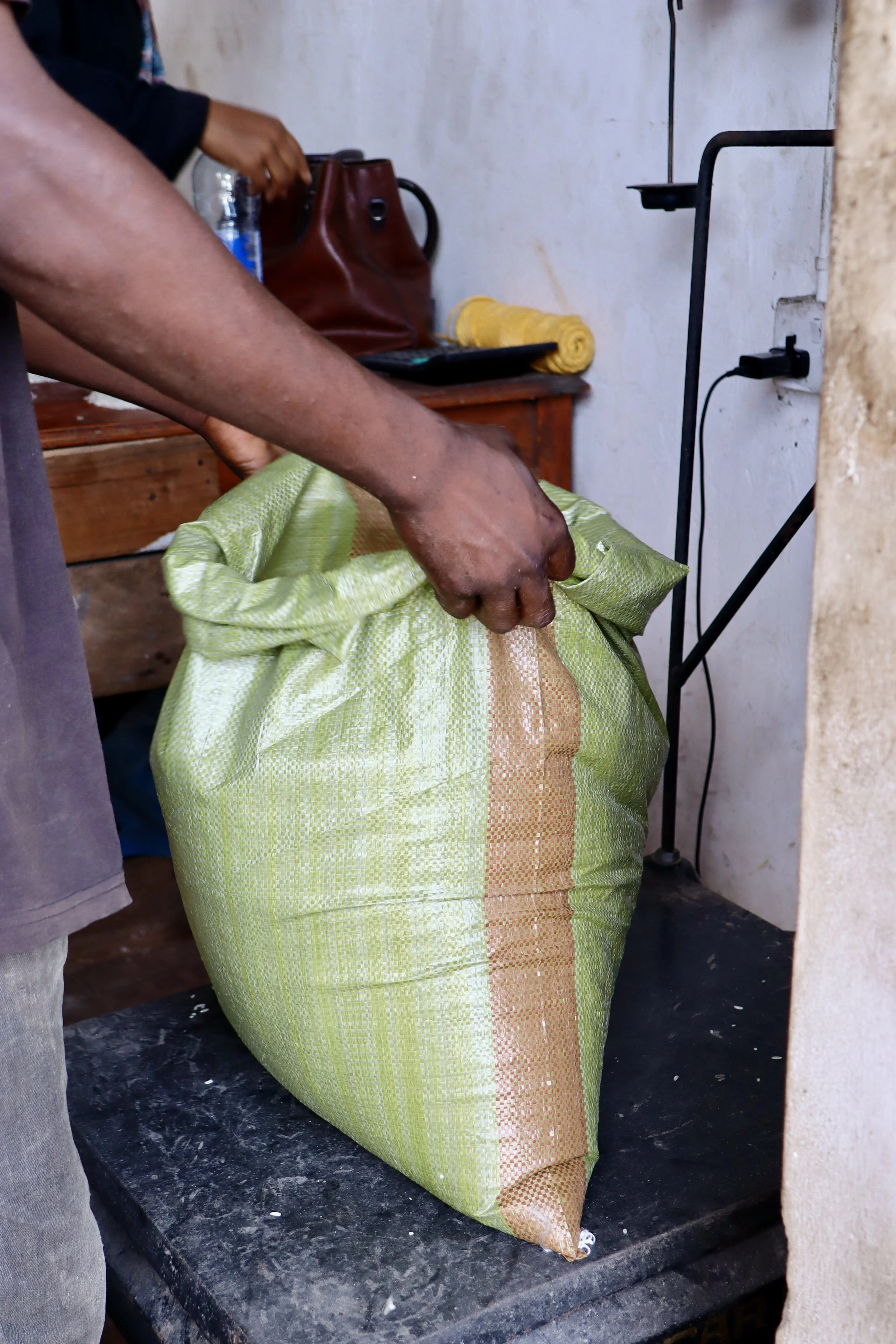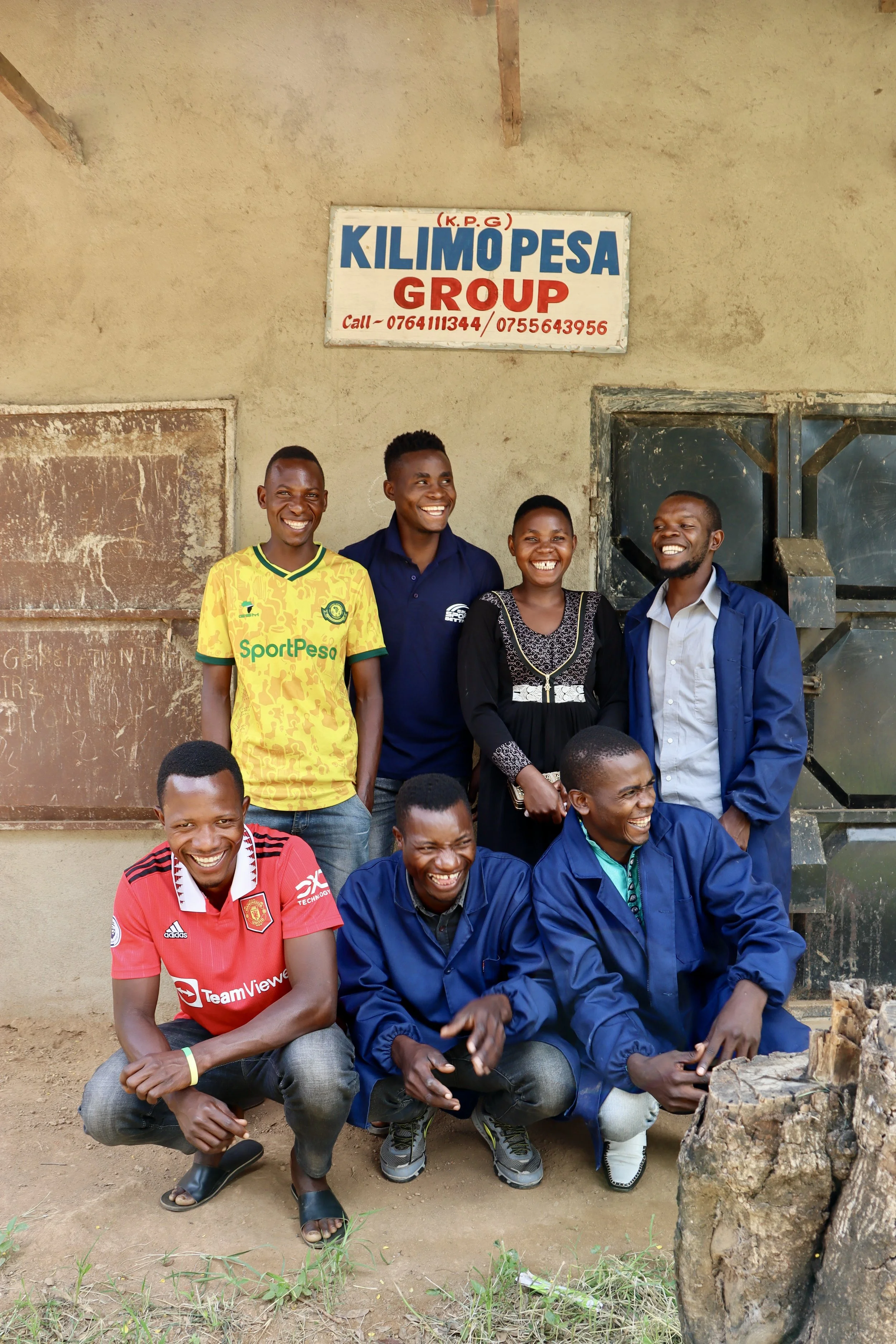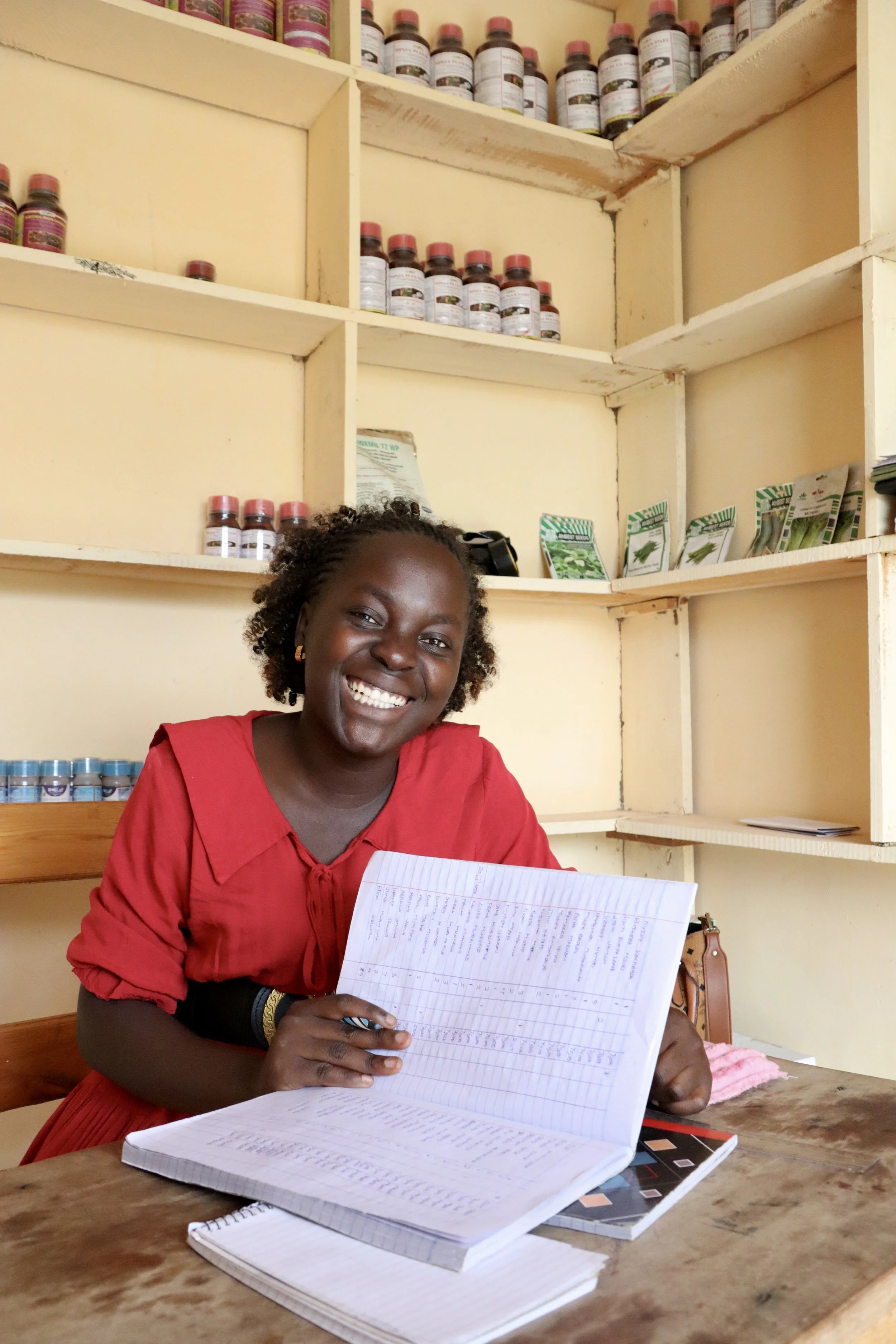Inclusive Rice Value Chain
Rice is the most rapidly growing source of food in Africa and is of significant importance to food security and food self-sufficiency in Tanzania. Small-scale farmers produce about 90% of the rice and struggle with low productivity due to lack of knowledge, and limited access to needed services and markets. Through inclusive value chain development, this project will support small-scale rice producers to overcome challenges with a special emphasis on women and youth.
Country
Tanzania
Periode
2024-2028
Contact
Partner
Donor
About the project
The project will be implemented in the Mbarali district in Mbeya region and Kilombero and Malinyi districts in the Morogoro region.
The project is working in 6 thematic areas to achieve the overall goal.
1) Climate-resilient and market-oriented rice production
The project will train over 10 500 small-scale rice producers in the System of Rice Intensification, a climate-resilient production method that also increases productivity. Training will also include a focus on financial literacy and marketing, the use of improved climate-resilient seeds, pre-and post-harvest handling procedures, climate change, and gender norms and relations.
2) Production and access to climate-resilient seeds
The project will facilitate access to affordable quality seeds of climate resilient and farmer-preferred varieties to about 40,000 small-scale rice producers through training in production and sale of quality declared seeds by 200 small-scale rice producers and strengthen the six seed clusters that supports the seed producers.
3) Women groups and youth businesses
5250 women will receive the same training as men, but supplementary interventions will be provided to women to ensure they can achieve the same productivity results as men. 50 Village Community Bank (VICOBA) groups consisting of 1000 women will be supported to save and lend to each other for farming purposes and access different financial opportunities. 50 other women groups with a total of 1000 members will be supported with land and working capital so they can produce quality rice.
50 youth groups will be established, or strengthened, to provide agricultural services to the women’s groups and other rice producers.
4) Enterprise development
Kilombero Rice Farmers Trading Company (KTC) and Mbarali and Neighbors Small Scale Farmers Company (MTC), will through the project strengthen and scale up their services such as providing access to fertilizer, agricultural machinery, credit, value-adding infrastructure and markets while continuing to strengthen local ownership in the rice value chain.
5) Access to weather, climate, and financial information and services
The project will contribute to developing new partnerships and tailor-made services that enable small-scale rice producers’ access to climate and financial services needed to make smart choices and investments in their farms.
6) Improved framework conditions
The project will work to support the government and hold them accountable to goals set when it comes to rice production and productivity, gender and youth inclusion, and climate adaptation in addition to solving specific value chain challenges identified by the targeted farmers.
Norges Vel's contribution and role
Project management and quality assurance
Business development advisory
Group formation and development for youth and women
Development of climate, weather, and financial services
Capacity building of local partners
Knowledge generation and sharing

